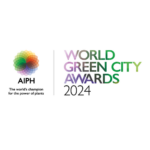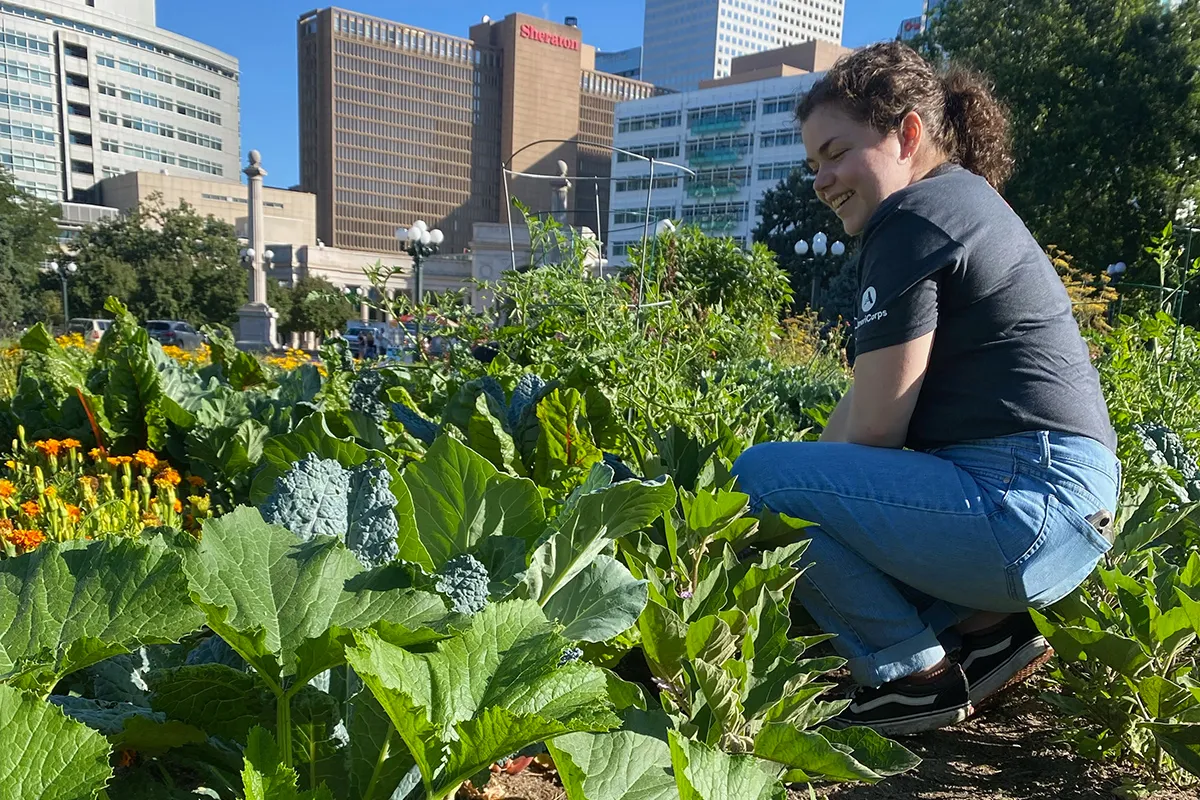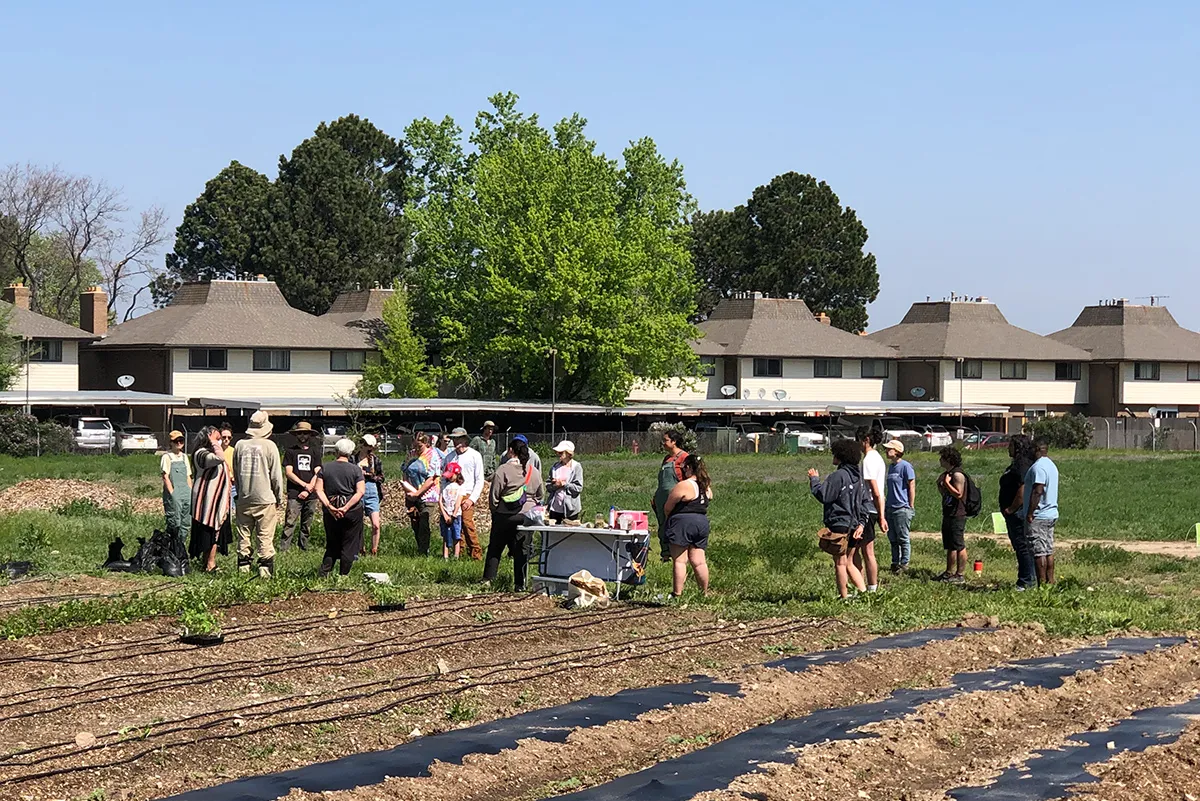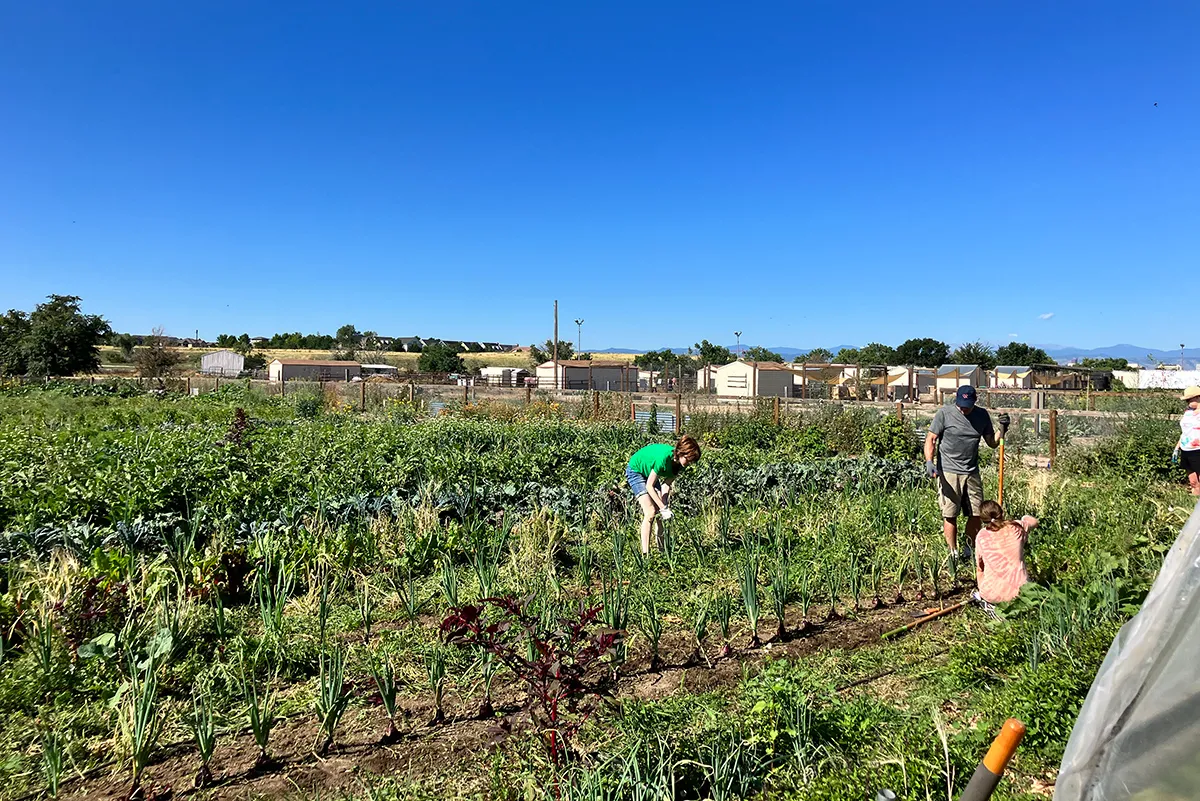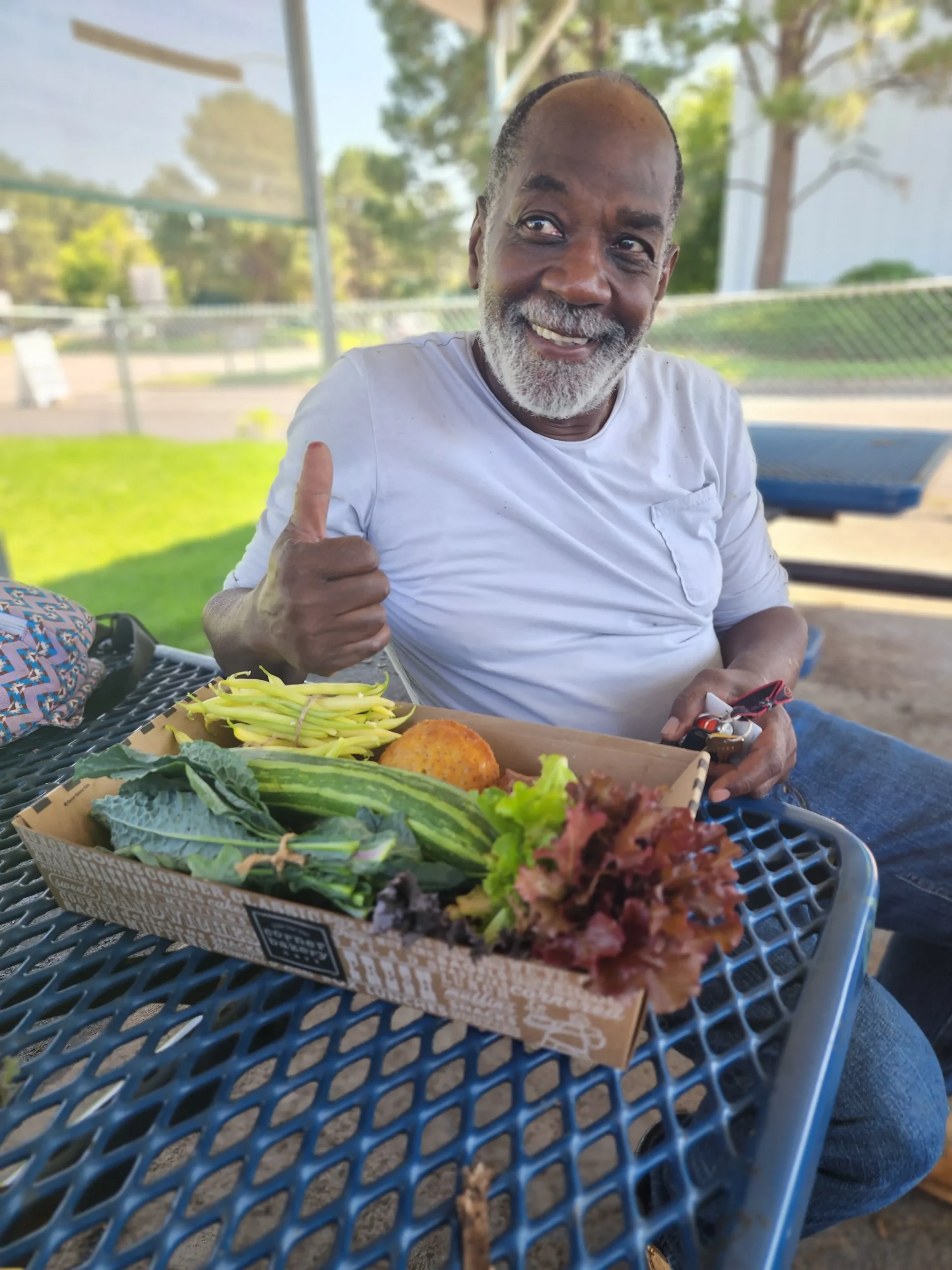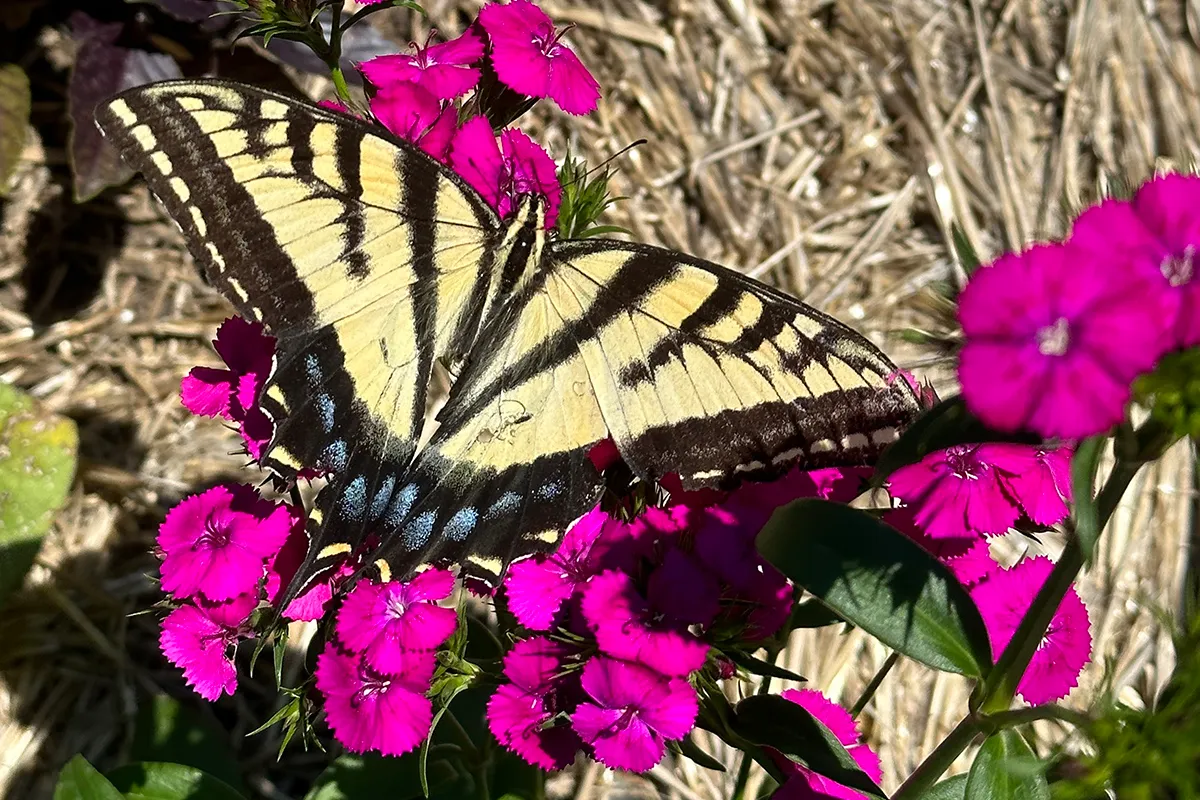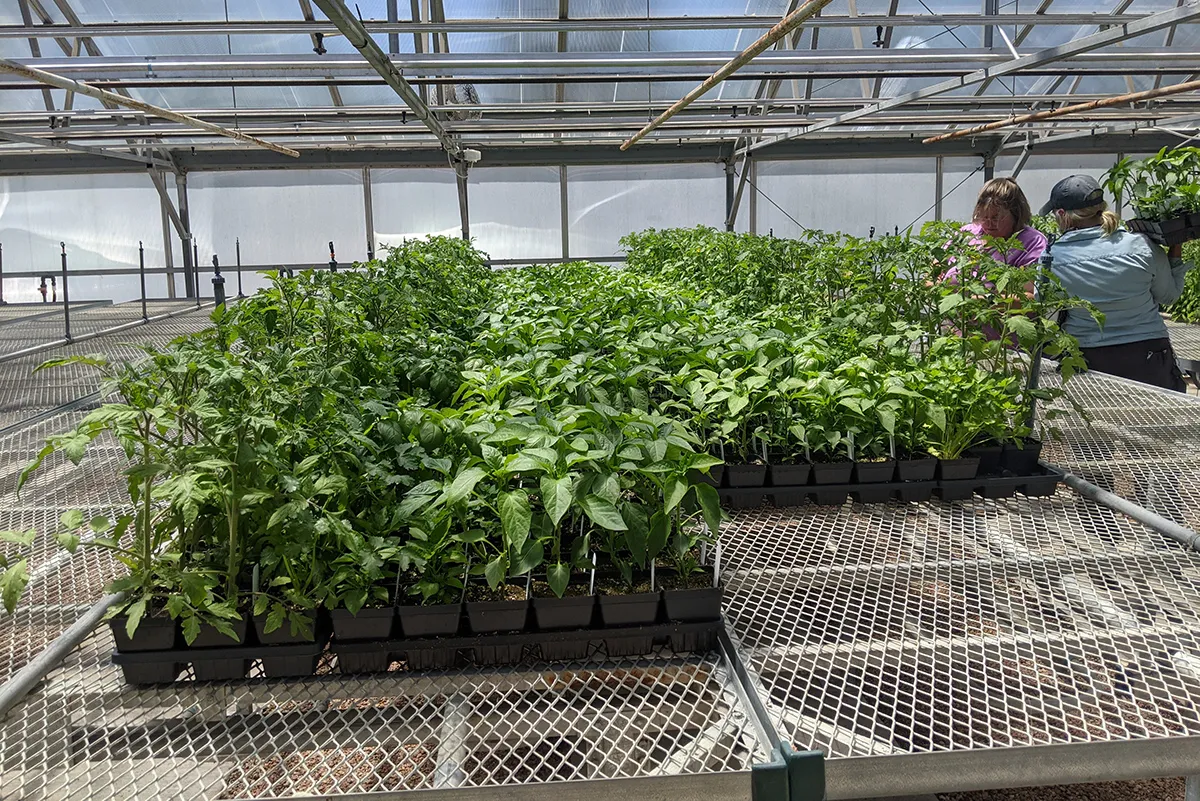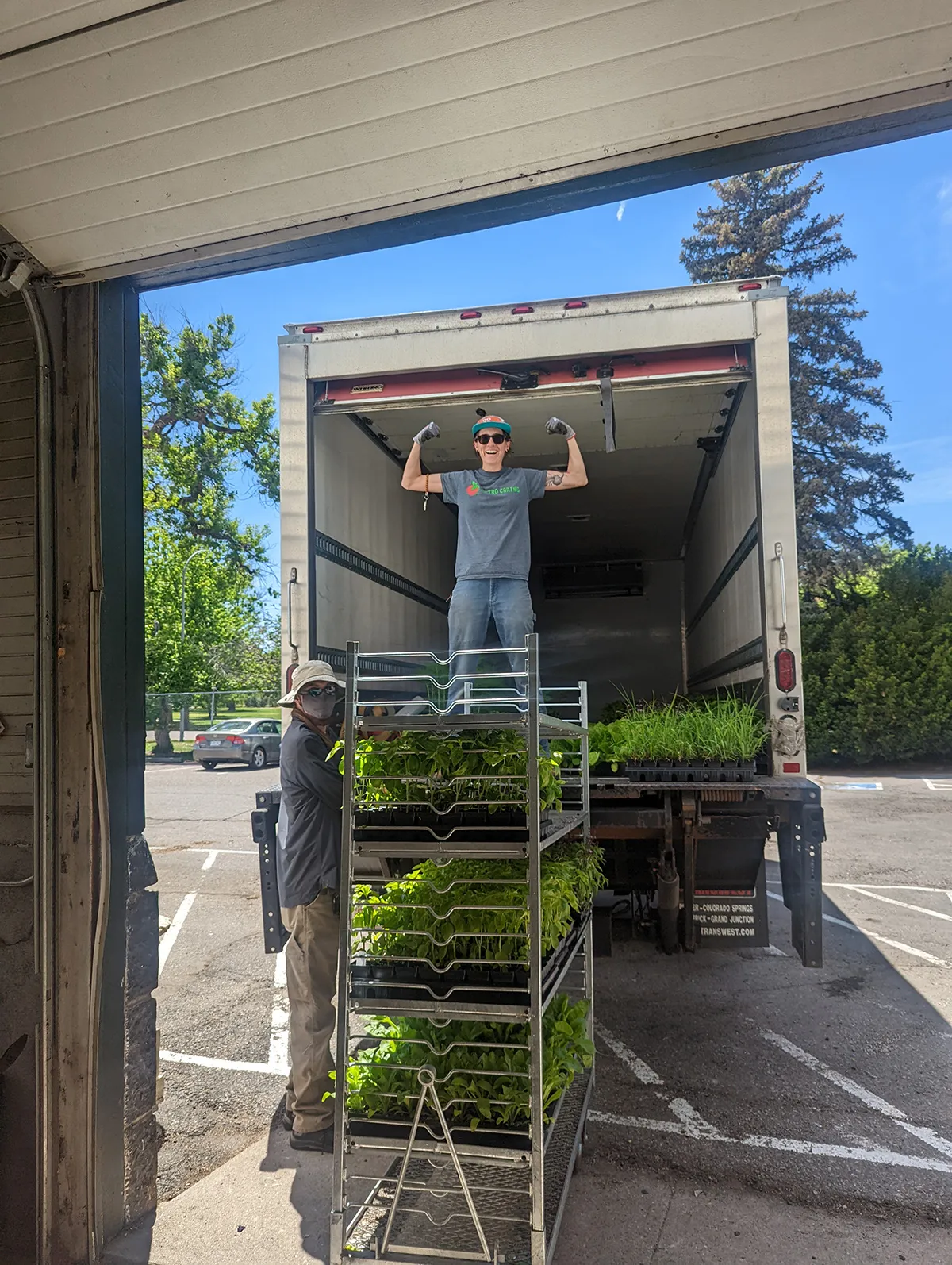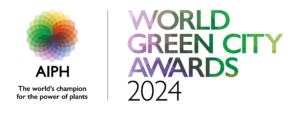Benefits of Urban Greening
Harnessing the Power of Plants
There are many studies that show that plants and natural ecosystems enrich the lives of people, especially those in an urban environment. Denver Urban Gardens partnered in a three-year (2018-2020) randomised trial, called the CAPS study, which explored the physical and mental health benefits of community gardening. It was funded by the American Cancer Society and conducted by researchers from University of Colorado Boulder, Colorado State University, University of North Carolina at Chapel Hill, Michigan State University, University of Colorado Anschutz Medical Campus, University of South Carolina, and Urban Institute.
The study, which operated exclusively in DUG gardens, found that people who started gardening ate more fibre and got more physical activity—two known ways to reduce risk of cancer and chronic diseases. They also saw their levels of stress and anxiety significantly decrease.
We also know that fresh food is nutrient dense food which is better to fuel our bodies.
Studies have shown that when people know where their food comes from it gives them a better sense of place in their lives which leads to better understanding of the environment around them and stewardship of their communities.
With this programmeme we hope to expand shared knowledge and create a science based network of localised farming and production practices, successes, and obstacles for now and generations to come.
Denver also has the need to create a local food system buffer from shocks or disruptions in the globalised food system (ex. COVID-19) to help our community thrive.
Delivering Multiple Benefits
Growing and distributing food is important, however it is not enough. Training the next generation on how to grow and prepare food for their community in the midst of climate change is key to our future.
Numerous studies show that gardening improves our physical and mental health. (https://www.colorado.edu/today/2023/01/05/scientific-reasons-you-should-resolve-start-gardening-2023) With loneliness becoming a national epidemic (https://www.npr.org/2023/05/02/1173418268/loneliness-connection-mental-health-dementia-surgeon-general) we are providing essential human connections in our gardens and on our farms.
City of Denver adopted our Game Plan for a Healthy City in 2003 and then revised it in 2019. This programme covers all the pillars of our Game Plan which are Every Drop, Every Dollar, Every Person, and Uniquely Denver. We know that to prepare for the future we cannot leave anyone behind. Water conservation and quality, equity in every dollar and every person, and the knowledge of the unique landscapes and ecosystems in our western climate must be preserved, recognised and understood for our future generations to thrive and prosper.
The City’s Bold and Innovative Vision
This initiative is bold in that it is municipal supported urban agriculture. City employees are growing vegetable starts in a city facility for distribution to non-profit and community centred organisations all over the metro area. One central location and plan makes this process smooth and successful. The staff at the greenhouse provide their expertise on crop times, growing conditions, pick up times as well as space, water and labour. The nonprofit groups provide the seed, containers, soil, fertiliser and deliveries to the sites. Once the vegetables leave the greenhouse each group runs by their own mission in their own way knowing what is best for the community they work in. This keeps the staff in each area innovative and able to change to the current needs of their unique situations and keep relevant in the community they serve.
Partnerships and Collaboration
This initiative is supported by 15 local non profit partners who work with local food pantries, shelters and food kitchens to reach all corners of the Denver metro area. Each of these partners works with a multitude of different stakeholders depending on their mission. Denver Urban Gardens, for example, has some plots on Denver City property which means they work with City Planners and Engineers on any changes to their sites or new builds. Grow Local uses plots within some of the gardens in the city which are maintained by city staff. This means they work with Designers, Planners and other landscape professionals in their daily work. Other groups work with many other professions on homelessness issues, Farmer’s Markets, and weekend festivals.
Denver Parks and Recreation’s support of space, labour and water connects DPR horticulture and operations staff and their expertise to the local community in a very unique way through the below entities.
Growing Food Feeding People Members:
- Children’s Farms in Action
- CSU Extension
- Denver Children’s Home
- Denver Public Schools
- Denver Urban Gardens
- Ekar Farm
- Fresh Food Connect
- Grow Local Colorado
- Kaizen Food Rescue
- Metro Caring
- Montbello Urban Farm
- Re:Vision
- Slow Food Denver
- The Table Denver
- The Urban Farm
Addressing Urban Challenges
The Issue
The Denver Metro area’s cost of living is higher than the national average this year. (https://www.denverpost.com/2023/06/14/metro-denver-inflation-may-food-cars-rents/). That means that families must decide between paying for rent or feeding their family. Do they buy gas for their car so they can get to work or buy healthy food for their families? Are utility bills a higher priority or is a nutritious meal? Unfortunately, food is usually where families cut back. In 2021 Feeding America estimates 73,930 (10.5%) people in Denver County are food insecure. Of those, 17,740 (13%) children in Denver County are food insecure. https://map.feedingamerica.org/county/2021/overall/colorado/county/denver.
Without this initiative the number of people experiencing hunger, social angst and poverty will continue to rise. We must teach the necessary skills for our local communities to thrive on their own and regenerate our urban spaces.
The Impact of the Issue
Currently statistics show that 33% of Coloradans lack access to nutritious food.
Food-insecure children are at least twice as likely to report being in fair or poor health and 1.4 times more likely to have asthma. These kids are at greater risk of anaemia, cognitive problems, poor oral health, and behavioural health issues including aggression and anxiety, depression and suicide. https://www.coloradohealthinstitute.org/
A Nature Orientated Future
We know that food insecurity places a large burden on society through health care and social issues.
By supporting nonprofits that work in spaces throughout our entire metro community with many different avenues to reach out to the population we are focusing on the city as a whole and not only certain areas. These entities have a pulse on what is going on and what is needed most in certain areas and we can tailor our programme to fit and make the best use of our resources.
Nature Positive Solutions
Implementation
In the beginning in 2020 there were nine total members of Growing Food Feeding People. As of today, there are 15 total members in the coalition. In 2020 City of Denver donated plants and helped with consultation. Starting in 2021 the City Park Greenhouse grew 22,200 vegetable starts and has been adding each season. We are now up to 23,040 vegetable starts in 2023.
We have the capacity to add more partners and be more creative with our space in the greenhouses. With each partner that we add, we add more services to the community and more innovative ideas for the success of the programme. We hope to continue to grow the education piece of the programmes by focusing on small production that can be done in the home without growing facilities. In 2024 and 2025 the greenhouse staff will be a part of learning videos which can be watched on the websites of our partners so we can get this information out to more people.
All of these initiatives encompass our knowledge that practising sustainable agriculture is key to a healthy and diverse future. Our organisations ensure our soils are healthier for the next generation of growers. Our gardens and farms have a wide variety of crops and flowers as well as vegetables. The flowers attract pollinators and provide habitat for a host of living creatures. We hope to tackle hunger and climate change together one step at a time.
Feasibility
The City of Denver is committed to this cause by our Game Plan policies, our recently created Office of Climate Action Sustainability & Resiliency which Denver voters approved in 2020 through a Climate Protection Fund (tax), and our Denver Food Action Plan. City Park Greenhouse has been serving the people of Denver since 1894 and is a well-established horticultural asset to Denver Parks. Leadership and staff are well invested in this programme and it is not a large financial burden with the way it is set up.
Multi-Stakeholder Support
The coalition and parks operations staff have shown that we can innovate and make something happen without a lot of red tape that touches the lives of many in our community. Our Urban Ecology Planning team as well as our Resiliency Task Force understands the importance of our work and we have good backing from the Mayor’s office. We have support from external groups with interest in these issues such as The Denver Park Trust, City Council members and community leaders who work with the nonprofits.
Management and Maintenance
This programme came about from a large need in our community. In the first year it was loosely organised and thought of as somewhat of a pilot programme. Since that time there has been a lot of communication and innovation from all sides. The greenhouse staff have set up very clear protocols for ordering, growing timeframes, pick up times, and feedback to raise the success each season. The coalition has worked diligently on finding partners out in the community that are set up well ahead of time for their growing spaces, donations for seed, containers, soil and fertiliser to ensure the success of their side of the programme. All of these protocols are well documented, and any new person or group could “pick up the baton” at any time without a lot of learning time.
The largest barrier was getting things set up for the first season and getting everyone on the same page. We will continue to debrief after each season and change our practises to match what is most needed at any given time.
Measuring and Reporting Impact
Monitoring Results
Each nonprofit in the coalition tracks the number of pounds of produce harvested, how many servings this equates to (there is a large difference between pounds harvested and how many servings available), how many people use their services, and the number of volunteers engaged in each programme.
So far, the numbers have grown every year and with current conditions in Denver with rent prices staying steady, people experiencing homelessness rising, large numbers of immigrants entering our city daily, and large areas of food deserts with no access to nutritious food we expect to see higher need in the future.
We hope that with our education base it will become more of a “train the trainer” programme which will focus on the environmental factors as well as hunger issues.
Demonstrating Progress
Feedback from communities in these neighbourhoods that are the most helped can be directly linked to our qualitative numbers. Some of the members also track returning users from year to year. The fact that we are all communicating and meeting regularly gives us a good pulse on the impacts and ways to start to streamline our monitoring to some of the same outcomes which makes planning steps forward easier.
This is set up very differently from a Community Supported Agriculture or a direct donation food bank and other programmes in the city – they are all needed so there is always room for more ways to get this work done.
Measuring Impact
Our measurements are both qualitative and quantitative. Since 2020 our combined efforts have distributed over 386,000 pounds of fresh and nutrient dense food to those who need it the most. We were on track in 2023 to beat the 2022 harvest of 141,500 pounds. Each nonprofit has its own story telling associated with “the Why” of how they came about, and many of these are unique to the cultural group they are associated with.
Common tracking metrics for all are:
- number of pounds of produce harvested.
- how many servings this equates to (there is a large difference between pounds harvested and how many servings available).
- how many people use their services.
- the number of volunteers engaged in each programme.
Learning and Transferability
Adaption and Enhancement
As for City Park Greenhouse we have taken a much more organised approach with what we ask of our partners. We started with somewhat of a “hodge podge” the first year. Collected seeds with no expected germination rates, different containers by different groups, and even different kinds of soil as each person brought what they had on hand to use. We now run this programme as we do all the other plants we grow in the greenhouse for the best success. We have standardised sizes for containers, the same soil so it all dries out uniformly, the same fertiliser and growth regimes. We for the most part purchase the seed from a vendor to make sure we get good viability and we have cut our grow time down so that the plants go out smaller and easier to transport.
We also now have one point of contact on organising for the season which is Barbara from Grow Local Colorado. We still meet with the group to get feedback and learn of any issues, but all requests and crop items come through the one channel and on one spreadsheet template, so it is not so confusing. We have all learned to take our best talents and use them to get it done most efficiently and keep things moving.
Potential for Replication
We now grow many vegetables in our traditional City and County of Denver beds which we donate and our golf enterprise fund grows vegetables for donations as well as pumpkins for a large youth project through our First Tee programme.
Civic Center Park the heart of our city offices has always had one or two beds that Grow Local tended. After 2021 they allowed Grow Local Colorado to take over more of their beds and they now grow produce in 12 beds in the park. This is a large internal shift for our staff. Internal horticulturists now see the vision and we grow plants to match their design for the year to make it all flow and be aesthetically pleasing with more companion plants and pollinator plants mixed in with the vegetables.
With the cost of living many of our staff live in apartments. City Park Greenhouse now grows salsa kits for small footprint growing for all of our operations shops throughout the city (21) so that our staff can have fresh produce and enjoy the benefits of gardening as well.
Inspiring Other Cities
The largest thing we see is the nonprofit groups when out working in the gardens get many questions from the public on what they are doing and how they could start something like this in their home community. Many of the gardens are in very well trafficked areas with a lot of tourists who want to take this idea back to their city.
It all starts with the vegetable starts, if they can find someone to consistently grow the product, and they can work together as a group for a common goal it can be done anywhere.
Resilience
Reducing Negative Impacts and Ensuring Sustainability
We have set days for trucking when distributing and group the areas of town to drive the least possible amount of miles.
With all plants being grown in a central location there is much less driving around to procure the plants which cuts down on drive time by a lot.
We sanitise and reuse all of the containers from year to year until they fall apart and then we recycle them.
We start the plants closest to their distribution date as possible so as not to need to heat the houses as much while still in cool temperatures, or cool them if they are getting too tall/big at the end of the growing period.
Through our programme we promote healthy eating and less meat consumption.
Environmental Considerations
All plants are hand watered in the greenhouse so as to use only what the plant needs.
Organic fertiliser and soils are used in the greenhouse.
For our Integrated Pest Management, we use beneficial insects which reduces the synthetic chemicals going out into the city’s local environment and we do not harm pollinators.
In the field, most of the entities use drip line, a method of irrigation that conserves water.
Cover crops are planted in the fall to support the soil microbes, prevent erosion, reduce weeds and retain moisture.
Smaller pot sizes are chosen to reduce the use of plastics and then we reuse and recycle our containers. This also means less space, so less trips by truck to each destination.
Plants are chosen for the highest yield and best short season producers, as we are getting later and earlier frosts as well as high heat at differing times of the year, to have lower inputs and maintenance in the field.
Use of Natural Resources
When possible, all groups are using local compost and mulch, they pick up coffee grounds and mushroom substrates from restaurants which keeps them from going into the landfill.
90% of the plants are composted at the end of season to use for next season. Denver Urban Gardens runs a very popular composting class for the public year round at their facility.
Colorado does not allow non-potable or recycled water to be used on vegetables at the current time. They did pass the use of rain catch water which facilities are working to take advantage of at a large scale.















